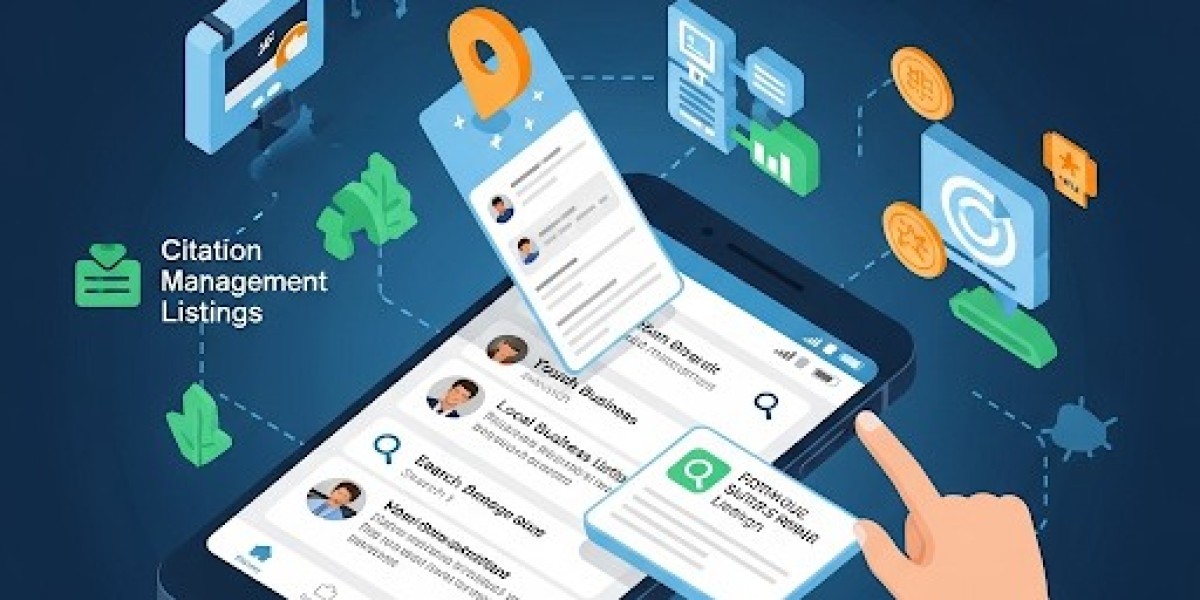In today's highly competitive digital landscape, local SEO (Search Engine Optimization) is no longer optional for businesses in London—it’s essential. With over 9 million people living in the UK capital and thousands of businesses competing for their attention, standing out locally on Google can make or break your business.
Whether you run a brick-and-mortar shop in Camden, a salon in Shoreditch, or a law firm in Westminster, local SEO in London ensures your business is visible to potential customers in your area when they search for your products or services online.
In this comprehensive guide, we’ll cover everything you need to know about local SEO in London, why it’s important, and how to leverage it to boost your business’s visibility, web traffic, and revenue.
What Is Local SEO?
Local SEO is the practice of optimizing your online presence to attract more business from relevant local searches on Google and other search engines. These searches include keywords like:
“Best coffee shop in Soho”
“Plumber near me”
“Digital marketing agency London”
Local SEO focuses on improving your rankings for geographically-related searches, especially on Google Maps and in the local 3-pack (the map listing with 3 businesses that appears at the top of search results).
Why Is Local SEO Important for London Businesses?
1. High Local Search Volume
London residents frequently use Google to find nearby businesses. Whether they’re looking for a restaurant, dentist, or real estate agent, they’ll search locally first. Without local SEO, your business risks being invisible to potential customers.
2. Mobile Search Domination
With the rise of smartphones, mobile users now dominate search traffic. Most mobile searches include location-based queries. If your business isn’t optimized for local SEO, you’re missing a massive chunk of mobile traffic in London.
3. Competitive Advantage
London’s marketplace is saturated. From startups in East London to established firms in Central London, competition is fierce. Local SEO helps your business appear at the top of search results for your area, giving you a vital edge.
4. Increased Foot Traffic and Conversions
Optimizing for local SEO drives more targeted traffic—people who are actively searching for what you offer. These visitors are more likely to convert into paying customers, especially if they’re located nearby.
Key Elements of Local SEO in London
1. Google Business Profile (GBP) Optimization
Your Google Business Profile (formerly Google My Business) is the cornerstone of local SEO. Make sure your listing is:
Fully completed with correct business name, address, and phone number (NAP)
Categorized accurately
Optimized with high-quality photos
Updated with regular posts, offers, and events
Includes positive customer reviews with prompt replies
Google favours active and accurate listings, so invest time in maintaining your GBP profile.
2. Local Keywords
Use London-specific keywords throughout your website, such as:
“Hair salon Clapham”
“Accountant in Kensington”
“Web design agency East London”
Use keyword research tools like Google Keyword Planner or Ubersuggest to find high-volume local terms. Incorporate them naturally into:
Page titles
Meta descriptions
Headings (H1, H2, etc.)
Image alt tags
URLs
Website content
3. NAP Consistency
Ensure your Name, Address, and Phone Number (NAP) are consistent across all online directories, such as Yelp, Bing Places, Thomson Local, and Apple Maps. Even a slight variation can confuse search engines and hurt your rankings.
4. Local Business Schema Markup
Add Local Business Schema to your website’s code. This structured data helps search engines better understand your business, increasing your chances of appearing in rich results and map packs.
5. Citations and Local Listings
Create and manage consistent listings on trusted London business directories. Some useful ones include:
Yell.com
Thomson Local
London Online
Scoot.co.uk
Bizify
192.com
These citations signal trust and relevance to search engines, improving your local authority.
Content Marketing with a Local Focus
Content is a powerful tool for local SEO. Create hyper-local content that addresses your target audience’s needs, interests, and pain points. Ideas include:
Blog posts about London-based events
Local area guides (e.g., “Top 10 Lunch Spots in Covent Garden”)
Case studies featuring local clients
Location landing pages for different London boroughs
FAQs about services in specific London areas
This helps search engines understand your geographic relevance and improves your chances of ranking for local terms.
Online Reviews: Social Proof Matters
Why Reviews Are Crucial:
93% of consumers read online reviews before making a purchase
Google uses review signals in its local search algorithm
Encourage satisfied London customers to leave reviews on:
Google Business Profile
Trustpilot
Facebook
Yelp
TripAdvisor (if relevant)
Always respond to reviews—both positive and negative. This shows you value customer feedback and improves your brand reputation.
Mobile Optimization for Local Search
Since most local searches happen on mobile devices, your website must:
Load quickly (under 3 seconds)
Be responsive across all screen sizes
Feature click-to-call buttons
Show your address and directions prominently
Google prioritizes mobile-friendly websites in search results, especially for local queries.
Location Pages for Multi-Area Businesses
If your business operates in multiple areas of London, create individual location landing pages. Each page should target different keywords and include:
Unique, localized content
Contact details
Area-specific testimonials
Embedded Google Maps
Office or store photos (if applicable)
Example: A London-wide cleaning service may have pages for “End of Tenancy Cleaning Hackney” and “Office Cleaning Westminster.”
Backlink Building with Local Relevance
Local backlinks are a strong ranking factor. Aim to get links from:
London-based blogs and news sites
Local business directories
Sponsorships or partnerships with London charities or events
London chamber of commerce
Local influencers or micro-celebrities
The more authoritative, location-specific backlinks you build, the better your chances of ranking higher in London SERPs.
Tracking and Measuring Local SEO Success
Use tools like:
Google Analytics – to monitor traffic sources and user behaviour
Google Search Console – to track impressions, clicks, and ranking positions
Google Business Insights – to analyze how customers find your GBP profile
Local SEO tools like BrightLocal or Moz Local for citation tracking and ranking reports
Set measurable goals such as:
Increased website visits from London
Growth in Google Maps visibility
Higher conversion rates from local visitors
More phone calls and direction requests
Working with a Local SEO Agency in London
If you don’t have the time or expertise, consider partnering with a local SEO agency in London. A professional agency understands the London market, competition, and consumer behaviour. They can:
Audit your existing local SEO performance
Optimize your Google Business Profile
Build quality citations and backlinks
Create locally-targeted content
Track KPIs and provide regular reports
When choosing an agency, look for:
Proven case studies
Transparent pricing
Local market experience
Good communication and support
Final Thoughts: Stay Local, Think Big
Whether you’re a solo tradesperson in Hackney, a boutique in Notting Hill, or a legal firm in the City, local SEO in London is the bridge between your business and the people searching for it.
It’s not just about being on Google—it’s about being found by the right people at the right time in the right place. By investing in a strong local SEO strategy, you’ll increase visibility, drive targeted traffic, and grow your customer base in one of the world’s most dynamic cities.








